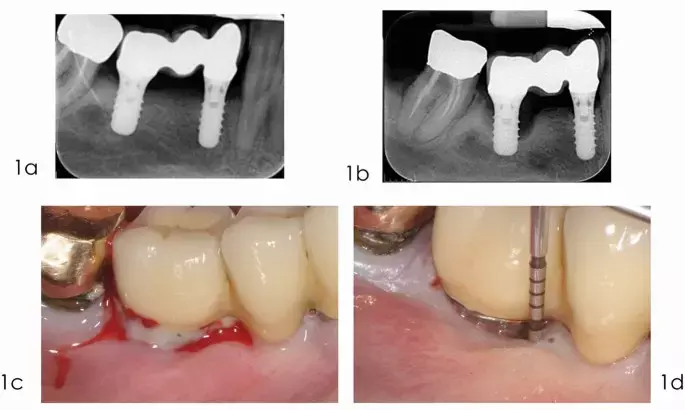- Home
- Medical news & Guidelines
- Anesthesiology
- Cardiology and CTVS
- Critical Care
- Dentistry
- Dermatology
- Diabetes and Endocrinology
- ENT
- Gastroenterology
- Medicine
- Nephrology
- Neurology
- Obstretics-Gynaecology
- Oncology
- Ophthalmology
- Orthopaedics
- Pediatrics-Neonatology
- Psychiatry
- Pulmonology
- Radiology
- Surgery
- Urology
- Laboratory Medicine
- Diet
- Nursing
- Paramedical
- Physiotherapy
- Health news
- Fact Check
- Bone Health Fact Check
- Brain Health Fact Check
- Cancer Related Fact Check
- Child Care Fact Check
- Dental and oral health fact check
- Diabetes and metabolic health fact check
- Diet and Nutrition Fact Check
- Eye and ENT Care Fact Check
- Fitness fact check
- Gut health fact check
- Heart health fact check
- Kidney health fact check
- Medical education fact check
- Men's health fact check
- Respiratory fact check
- Skin and hair care fact check
- Vaccine and Immunization fact check
- Women's health fact check
- AYUSH
- State News
- Andaman and Nicobar Islands
- Andhra Pradesh
- Arunachal Pradesh
- Assam
- Bihar
- Chandigarh
- Chattisgarh
- Dadra and Nagar Haveli
- Daman and Diu
- Delhi
- Goa
- Gujarat
- Haryana
- Himachal Pradesh
- Jammu & Kashmir
- Jharkhand
- Karnataka
- Kerala
- Ladakh
- Lakshadweep
- Madhya Pradesh
- Maharashtra
- Manipur
- Meghalaya
- Mizoram
- Nagaland
- Odisha
- Puducherry
- Punjab
- Rajasthan
- Sikkim
- Tamil Nadu
- Telangana
- Tripura
- Uttar Pradesh
- Uttrakhand
- West Bengal
- Medical Education
- Industry
Submerged reconstructive approach significantly enhances clinical outcomes of surgical treatment of periimplantitis suggests study

The submerged reconstructive approach significantly enhances clinical outcomes of surgical treatment of periimplantitis suggests a study published in the International Journal of Oral & Maxillofacial Implants.
A study was done to complete a reanalysis study of two similarly designed prospective controlled studies exploring prognostic factors associated with the surgical outcomes of reconstructive treatment of peri-implantitis. Materials and Methods: Individual patient data of both studies were gathered. The initial study employed a submerged healing approach via primary wound closure with implant suprastructure removal and complete coverage of grafted sites. The second study employed a nonsubmerged healing protocol in which healing abutments were kept in place and the implants were not fully submerged.
Both studies measured all prognostic factors at similar time points throughout 1 year and included clinical defect fill (DF) and radiographic defect fill (RDF), reduction of pocket depth (PDR), and bleeding on probing (BoP). Multilevel regression was used for statistical assessment of outcomes relative to the impact of site, local, surgical, and patient-related variables. Results: Overall, 59 implants (30 submerged and 29 nonsubmerged) were treated. Statistically significant higher DF (on average 0.9 mm higher), RDF (1.7 mm), and PDR (1.3 mm) were observed when a submerged reconstructive approach was performed, whereas BoP reduction was similar.
After controlling for treatment (submerged/ nonsubmerged), there were no other significant associations with patient-related (age, sex, smoking, prior periodontitis etc), or implant-related (previous prosthesis type, arch, keratinized tissue width [KTW], etc) factors. Within the study’s limitations, we conclude that a submerged reconstructive approach for surgical management of peri-implantitis leads to significantly enhanced clinical and radiographic outcomes when compared to a nonsubmerged approach.
Reference:
Wen SC, Sabri H, Dastouri E, Huang WX, Barootchi S, Wang HL. Submerged vs Nonsubmerged Reconstructive Approach for Surgical Treatment of Peri-implantitis: Reanalysis of Two Prospective Clinical Studies. Int J Oral Maxillofac Implants. 2024 Aug 29;39(4):526-536. doi: 10.11607/jomi.10560. PMID: 37939242.
Dr. Shravani Dali has completed her BDS from Pravara institute of medical sciences, loni. Following which she extensively worked in the healthcare sector for 2+ years. She has been actively involved in writing blogs in field of health and wellness. Currently she is pursuing her Masters of public health-health administration from Tata institute of social sciences. She can be contacted at editorial@medicaldialogues.in.
Dr Kamal Kant Kohli-MBBS, DTCD- a chest specialist with more than 30 years of practice and a flair for writing clinical articles, Dr Kamal Kant Kohli joined Medical Dialogues as a Chief Editor of Medical News. Besides writing articles, as an editor, he proofreads and verifies all the medical content published on Medical Dialogues including those coming from journals, studies,medical conferences,guidelines etc. Email: drkohli@medicaldialogues.in. Contact no. 011-43720751


